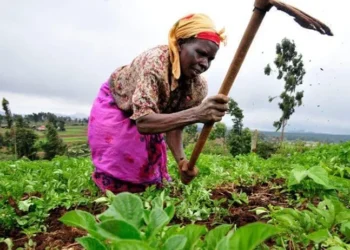COVID-19 has continued to have devastating effects on the agriculture sector despite the sector demonstrating some resilience in terms of growth in 2020. A recent survey conducted by the Ghana Statistical Service (GSS) shows that agriculture finance and transportation of agricultural products have been badly affected by the presence of the pandemic.
Access to finance has been a major challenge to businesses across all sectors of the economy. However, the agriculture sector has been one of the worst affected due to its risky nature. More recently, the Minister for Finance, Ken Ofori-Atta indicated that the agriculture sector receives around 4% of banks loans compared to its share in GDP. This also compares to its share of employment and potential for driving economic transformation.
In consonance, the GSS indicated that more than one in ten (11%) of agribusinesses in the agriculture sector reported a decrease in the supply of agriculture financing before the lockdown. However, this rose to about 31.5% during the lockdown, but declined marginally to 30.2% after the lifting of the lockdown. The respondents cited several reasons for the decrease in the supply of agriculture financing. However, the major reasons were high interest rate and inaccessibility of financial products due to lockdown or COVID-19. According to recent data from the Bank of Ghana, the average lending rate of universal banks in the country stands at 20.93% as of the end of April 2021.
Transportation of agriculture products
Furthermore, transportation plays a key role in the agricultural value chain. Inputs and outputs for agribusinesses need to be transported before the value chain could be completed. In the case of firms engaged in primary production, it is widely known that transportation has been a limiting factor to achieving higher value-added.
The GSS indicated that before COVID-19, 58% of agribusiness firms had easy access to transport. But, as much as 42% of them reported poor road network and irregular transportation. However, the pandemic has worsened the situation resulting in barely 4 out of 10 agribusiness firms having access to transport for agricultural produce. This, according to the GSS, “is attributed to supply chain disruptions and border closure since firms that import inputs and export their output can no longer do so”.
Marketing of agriculture products
Nevertheless, the outbreak of the pandemic has forced many agribusiness firms to intensify the use of technologies post-lockdown. The GSS survey reveals that out of the agribusiness firms that use the internet in the post lockdown era, 77% of them increased the use of the internet in marketing. This compares with 19% who increased the use of the internet during the lockdown period.
Similarly, the GSS observed a surge in the use of marketing technologies after the lockdown, and this includes specialized applications (85%), and digital platforms (86%). Agribusiness firms in the country mostly used digital platforms such as audiovisual media, online, and social media to market their produce in the wake of the pandemic. Moreover, the GSS noted that Agribusiness firms in the country seldom use other marketing technologies such as the internet and specialized applications.
READ ALSO: Government spends 50.1% of total revenue generated in Q1 2021 on wages and salaries























